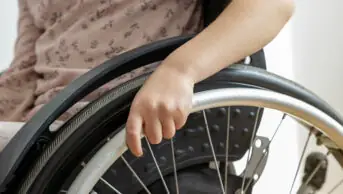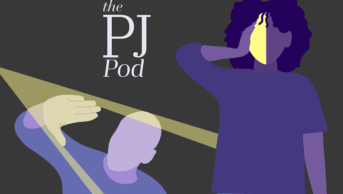
Shutterstock.com
The National Institute for Health and Care Excellence (NICE) has announced that the first non-cannabis-based treatment for a rare form of epilepsy will be available for NHS patients in England.
It has recommended the drug fenfluramine for seizures associated with Lennox-Gastaut syndrome (LGS), a life-long and treatment-resistant form of epilepsy, in people aged two years and over.
Previously, the only treatment recommended by NICE for LGS was cannabidiol (Epidyolex; Jazz Pharmaceuticals) with clobazam, which was approved in 2019. The availability of fenfluramine will provide a new option for patients who have not responded to existing treatments or who do not take clobazam owing to its side effects.
NICE said that clinical trials have demonstrated that fenfluramine can reduce the frequency of drop seizures — which cause a loss of consciousness and muscle control — by 26.5% on average, more than three times the reduction seen in the placebo arm.
More than a quarter (25.3%) of patients experienced a 50% or greater reduction in drop seizure frequency, compared with 10.3% in the placebo group.
Around 60,000 children in England are living with epilepsy and it is estimated that between 1% and 2% of children with epilepsy in England have LGS, which causes frequent, unpredictable and debilitating seizures.
In severe cases, children may experience multiple seizures throughout the day. These seizures often lead to cognitive issues, difficulties with mobility and an increased risk of injury.
Fenfluramine is an oral liquid medicine, taken daily, with the dose tailored to each patient based on their weight. It increases serotonin levels in the brain, helping to reduce seizure activity and is manufactured by Belgium-based pharmaceutical company UCB Pharma.
Stephen Powis, national medical director for NHS England, said: “This new treatment option on the NHS will now offer new hope, giving many the chance for greater stability and a better quality of life.
“Fenfluramine will offer a vital alternative for those who can’t tolerate existing cannabis-based treatment, and the fast-tracking of this treatment to be available from today is another example of the NHS’s commitment to ensuring access to the best therapies that deliver real benefits to patients, as well as value for the taxpayer.”
Ley Sander, medical director at the Epilepsy Society, said: “We welcome the decision by NICE to allow the prescription of fenfluramine for people with treatment-resistant LGS. It significantly reduces seizure frequency — mainly drop attacks and convulsions — and this will make a real difference to people with this rare form of epilepsy.
“Most people with this syndrome don’t achieve complete seizure freedom, but this will improve their quality of life. Given the limited therapeutic options currently available for LGS, this approval offers a significant source of hope for affected families.”
Tom Shillito, health improvement and research manager at Epilepsy Action, said: “It’s so promising to see new options being rolled out to treat an epilepsy syndrome that can be so debilitating.
“LGS can be highly resistant to medication, meaning achieving seizure control is really difficult [but] the impact of LGS goes beyond seizures. It can include cognitive impairment, communication difficulties, sleep and behavioural challenges and mobility problems. All of these issues significantly impact both patients’ and caregivers’ quality of life.
“We are hoping fenfluramine will represent a chance for better quality of life for people affected, where other treatments couldn’t. We have long supported this and have provided evidence to NICE during the review process, to ensure they took into consideration how much of a difference it could make to both people with LGS and their carers. It’s really positive they now have a new option,” he added.
In 2020, Epidyolex became easier to prescribe when the Home Office announced that it had reclassified the drug from a Schedule 2 to a Schedule 5 drug across the UK, following a recommendation from the Advisory Council on the Misuse of Drugs’s Technical Committee.


